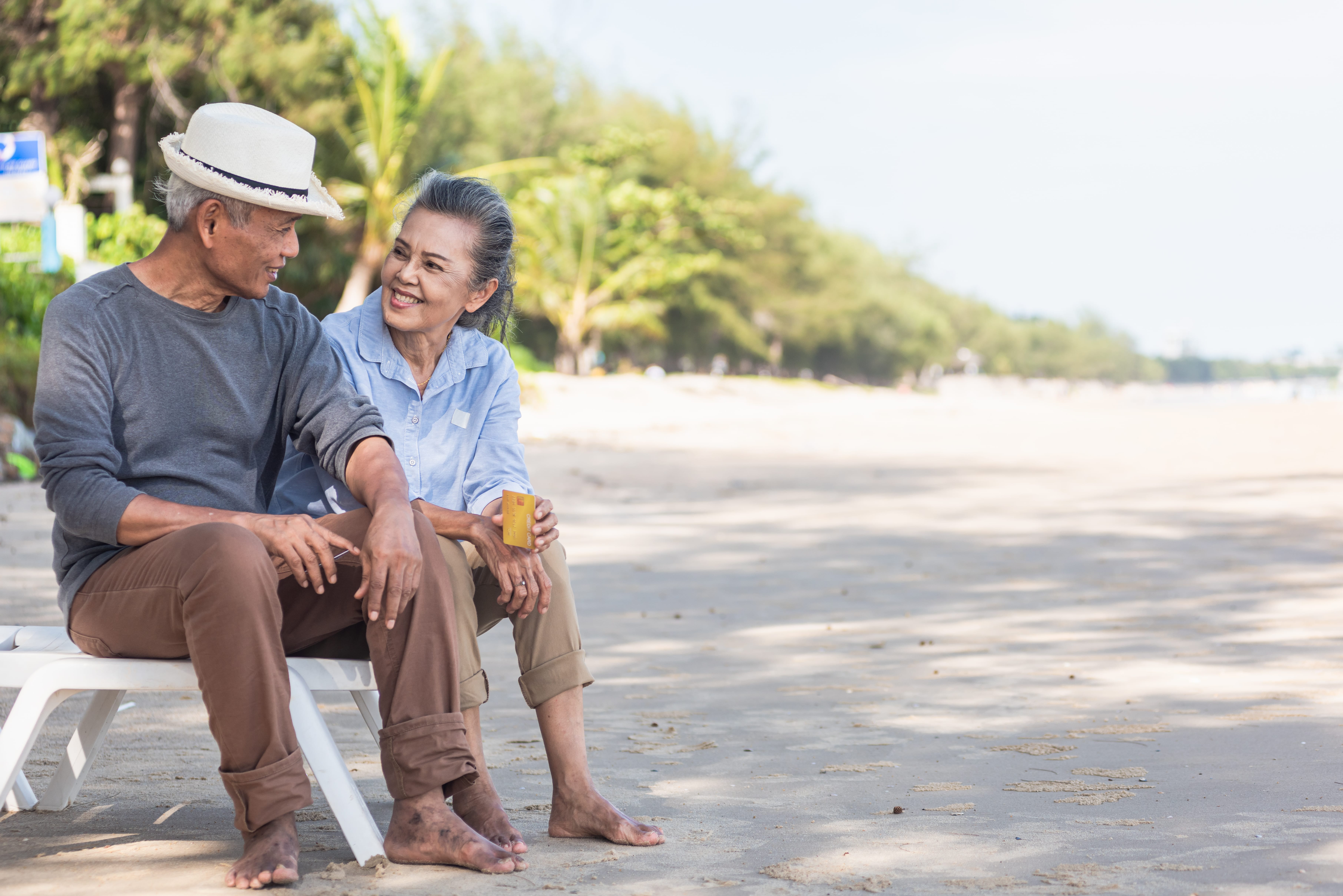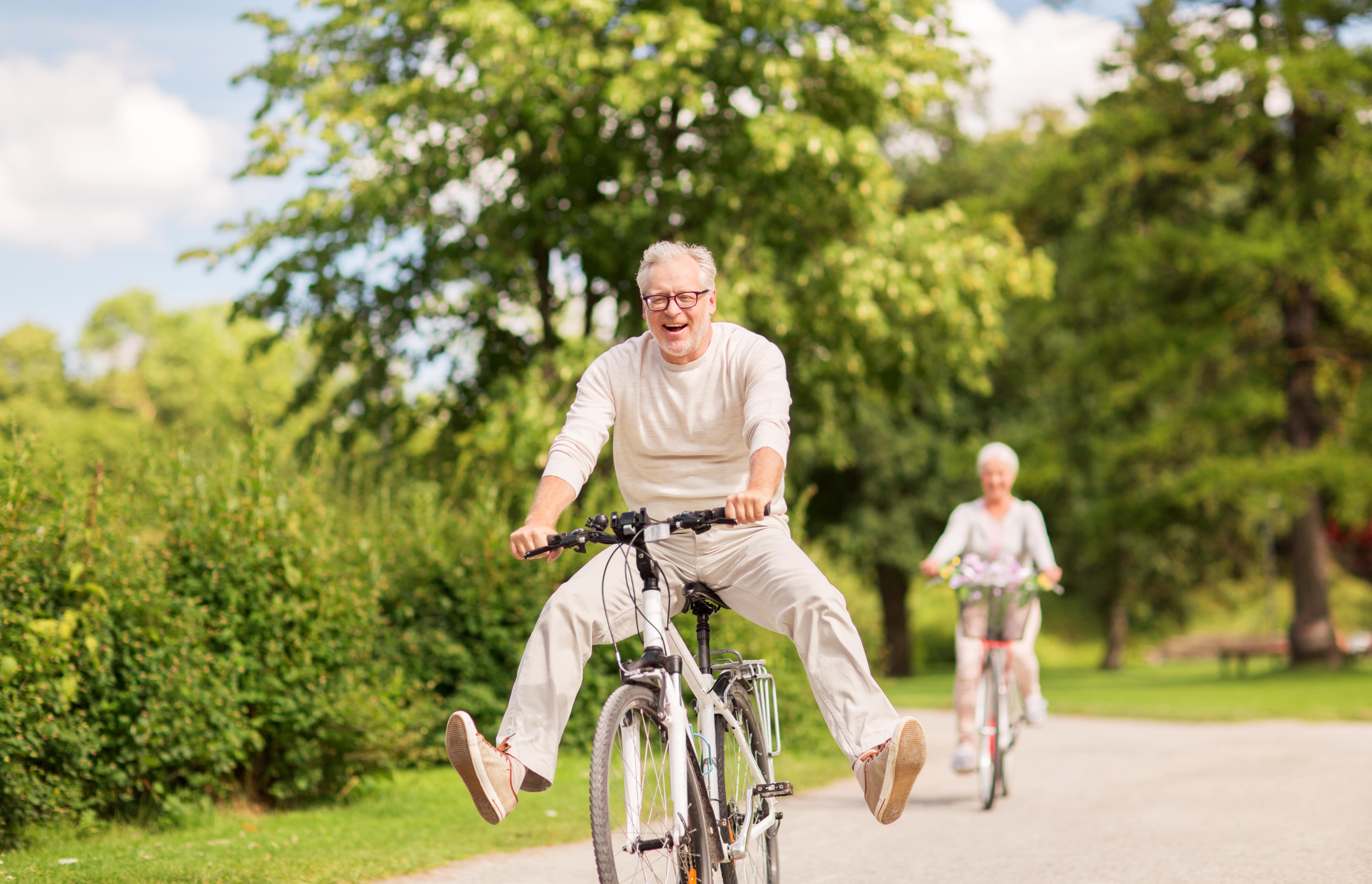The Science of Longevity: How to Live a Longer, Healthier Life
Last Updated: 01 October 2025

What does it really take to live a longer, healthier life? While many people look to genetics for answers, the truth is that lifestyle choices often have a far greater impact on how long and how well we live. In this article, we explore the science of longevity, uncovering the habits and changes that can support a longer life with better health.
The insights provided in this article are from Vivere's Head of Nutrition, Yusra Serdaroglu Aydin, a registered dietitian with a background in nutrition, food engineering and culinary arts. Her approach is grounded in science and shaped by a strong understanding of personalised nutrition and the human microbiome, both of which play a vital role in the ageing process.
Key Takeaways
Here are the five biggest takeaways from this article about the science behind living longer:
Longevity is influenced more by lifestyle than genetics, particularly through diet, physical activity, and stress management
Gut health is closely linked to ageing, and maintaining a balanced microbiome may slow age-related decline
Regular movement and strength training support both physical and cognitive function as we age
Caloric quality matters more than quantity; nutrient-dense foods contribute to cellular repair and longevity
A strong sense of purpose, social connection and restful sleep are essential pillars of a long and healthy life
Understanding Longevity and Why It Matters
Longevity refers not just to the number of years you live, but the quality of those years. This concept, often described as "healthspan", focuses on remaining physically, mentally and emotionally well as we age. Advances in science and medicine have increased average life expectancy, but the challenge remains in ensuring those extra years are lived in good health.
The ageing process is complex and affected by a wide range of factors, including inflammation, oxidative stress, mitochondrial function and DNA repair. Modifiable behaviours such as what we eat, how much we move and how we manage stress can significantly influence these biological mechanisms.

The Role of Diet in Healthy Ageing
Nutrition is one of the most powerful tools we have to influence longevity. Diets that promote a longer life tend to be plant-heavy, rich in fibre, antioxidants and healthy fats. They are also typically low in ultra-processed foods, added sugars and refined grains.
The Mediterranean Approach
One of the most widely studied dietary patterns linked to longevity is the Mediterranean diet. It focuses on whole foods like olive oil, nuts, legumes, vegetables, whole grains and moderate amounts of fish and dairy. Studies have shown this way of eating can reduce the risk of heart disease, type 2 diabetes and cognitive decline [1] [2].
Caloric Restriction, Intermittent Fasting and Nutrient Density
Evidence also supports the benefits of caloric restriction, without malnutrition, for extending lifespan in animals and potentially in humans. The emphasis here is on eating less. Choosing nutrient-dense foods such as leafy greens, oily fish, pulses and fermented foods provides the body with the tools it needs to maintain and repair cells [3] [4] [5].
Personalised Nutrition and the Microbiome
Thanks to advances in gut microbiome research, we now understand that what works for one person may not work for another. Personalised nutrition considers individual differences in genetics, microbiota composition and lifestyle, making it a promising area for supporting longevity. At Vivere, our gut microbiome testing and membership provide you with tailored nutritional advice that can help you live better for longer. A healthy microbiome supports immune function, reduces inflammation and improves nutrient absorption, all of which are crucial for ageing well.
Movement
Regular physical activity is one of the most consistent predictors of a long life. It helps maintain muscle mass, supports cardiovascular health, boosts mood and even encourages healthy brain function.
Aerobic Exercise
Activities like walking, swimming and cycling support heart and lung health and help control blood sugar levels. Just 150 minutes of moderate aerobic activity per week has been linked to a lower risk of premature death [6] [7].
Strength Training
Muscle mass naturally declines with age, a process known as sarcopenia. Resistance training helps preserve muscle and bone strength, reducing the risk of falls, fractures and frailty. Even using bodyweight or resistance bands twice a week can make a measurable difference [8] [9].
Flexibility and Balance
Practices like yoga, Pilates and tai chi promote joint health, balance and mental wellbeing. They are especially useful for older adults looking to maintain mobility and independence [10].
Sleep and Stress
Sleep and stress are often overlooked in conversations about longevity, but their impact can be great.
Quality Sleep
Good quality sleep allows the body to repair itself, supports hormonal balance and boosts immune resilience. Chronic sleep deprivation has been linked to increased inflammation, insulin resistance and cognitive decline [11].
To support restful sleep, it helps to have a consistent bedtime, reduce screen time before bed and keep caffeine intake moderate, especially in the afternoon.
Stress and Cortisol
Ongoing stress raises cortisol levels, which can suppress immune function, increase abdominal fat and accelerate cellular ageing. Simple stress-reduction techniques such as daily walks, mindfulness, breathwork and journaling can significantly improve both mental and physical health over time [12] [13].
The Importance of Purpose and Connection
Living with purpose and staying socially connected are key predictors of longevity, especially in older adults. Research from the Blue Zones, regions with high numbers of people living to 100 years old, has highlighted the value of belonging, close-knit communities and a strong sense of purpose in everyday life.
Loneliness and social isolation are associated with a higher risk of cardiovascular disease, depression and even early death. Prioritising meaningful relationships and staying mentally engaged can add not just years to life, but fulfilment to those years [14] [15].
Gut Health and Ageing
The gut microbiome changes as we age, with a general decline in microbial diversity. This shift is linked to higher levels of inflammation, which can accelerate age-related conditions such as arthritis, cognitive decline and heart disease.
Maintaining a diverse and balanced microbiome by utilising Vivere’s personalised nutritional advice and gut microbiome testing can support a healthy gut throughout life [16] [17] [18].
Supplements That Support Healthy Ageing
While food should always come first, supplements can help fill nutritional gaps, particularly in older adults. Certain vitamins and compounds have shown promise in supporting longevity.
Vitamin D: Supports immune health and bone strength [19].
Omega-3 fatty acids: Reduce inflammation and support heart and brain health [20].
Magnesium: Important for muscle function, sleep and stress regulation [21] [22].
Polyphenols: Found in green tea, berries and dark chocolate, support cellular health and reduce oxidative stress [23].
Probiotics: Help maintain microbial balance and support digestion [24].
NAD+: NAD+ is a natural coenzyme that depletes as you get older. NAD+ supplementation using devices like the Vivere NAD+ Injection Pen helps boost these levels, impacting cognitive health, cellular function and overall well-being.
Senolytics: These compounds help the body clear out aged or damaged cells, which may reduce age-related inflammation and support tissue repair.
Ca-AKG (Calcium Alpha-Ketoglutarate): A compound involved in energy metabolism that may help slow age-related decline by supporting cellular energy and reducing inflammation. Studies show an 8-year reduction in biological ageing after 7 months of use [25].
Glycine: An amino acid that supports collagen production, sleep quality and metabolic health, and may play a role in promoting healthy ageing at a cellular level [26].
At Vivere, we also provide tailored supplementation advice based on your needs and health goals.
Nutritionist's Corner: Final Thoughts
Living a longer, healthier life is not about extreme measures or expensive interventions. It’s about consistently making choices that support the body’s natural ability to thrive. From nourishing your microbiome to moving your body and finding happiness in social connections, every habit matters. The science of longevity shows us that a personalised, holistic approach, one that values the gut, the mind and the whole self, can help us live not only longer but better.
The habits we build today become the foundation of our future health, shaping not only how long we live, but the quality of those years. Every meal, every night of restful sleep, every interaction with a loved one is an investment in resilience, vitality, and the ability to age with strength and purpose.
Vivere helps you take control of your health with personalised insights from state-of-the-art gut microbiome testing, nutritional guidance, science-backed supplements and expert support. Sign up today and start living better, for longer.
Sources
[1] Mediterranean diet and life expectancy; beyond olive oil, fruits and vegetables - PMC
[3] Calorie restriction and fasting diets: What do we know? | National Institute on Aging
[4] Caloric Restriction in Humans: Impact on Physiological, Psychological, and Behavioral Outcomes - PMC
[6] Does Physical Activity Increase Life Expectancy? A Review of the Literature - PMC
[7] Doing any aerobic activity regularly may help you live longer - Harvard Health
[8] Telomere Length and Biological Aging: The Role of Strength Training in 4814 US Men and Women - MDPI
[9] How much resistance exercise is beneficial for healthy aging and longevity? - PMC
[10] Long‐term Tai Chi practice in older adults is associated with “younger” functional abilities - PMC
[11] People who sleep for seven hours a night live longest - PMC
[12] The link between spirituality and longevity - PMC
[13] Stress and Life Expectancy: How Does One Impact the Other? - University of Florida
[14] An active social life may help you live longer - Harvard
[15] How Social Connection Supports Longevity - Stanford
[16] Unique gut microbiome patterns linked to healthy aging, increased longevity - NIA
[17] The gut microbiome of healthy long-living people - PMC
[18] Nutrition, ageing and the gut microbiota | Feature from King's College London
[19] Vitamin D supplements may slow cellular aging | NHLBI, NIH
[21] Dietary magnesium supplementation improves lifespan in a mouse model of progeria - PMC
[22] Magnesium in Aging, Health and Diseases - PMC
[23] Impact of Polyphenolic-Food on Longevity: An Elixir of Life. An Overview - PMC
[26] Glycine supplementation extends lifespan of male and female mice - PubMed
Author

Yusra Serdaroglu Aydin, MSc RD
Head of Nutrition and Registered Dietitian
Yusra is a registered dietitian with a multidisciplinary background in nutrition, food engineering, and culinary arts. During her education, her curio...
Peer Reviewed by

Cat Fullbrook, ANutr
Nutritionist
Cat is an Associate Registered Nutritionist with specialist expertise in weight management and a strong focus on gut health and the microbiome. With a...